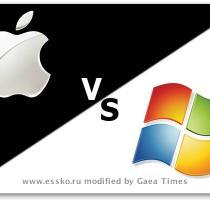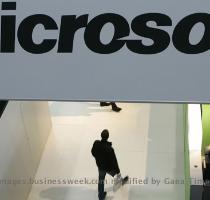Microsoft to offer $1.15 billion in convertible debt to enhance its financial flexibility
By Deborah Yao, APTuesday, June 8, 2010
Microsoft to offer $1.15B in convertible debt
Even one of the richest companies in the world, Microsoft Corp., can use some of the financial flexibility that comes from borrowing money at today’s relatively low rates.
Despite sitting on nearly $40 billion in cash and investments, the software company said Tuesday it will raise $1.15 billion by selling debt that is convertible to stock. The new funds will be used to repay earlier debt and could give the company more leeway to boost dividends or buy back shares.
Analysts said the software company is under pressure from investors to use its hefty cash reserves for business expansion and to boost shareholder return.
“They can take on more debt and reinvest in buying back stock, which could have more value” to shareholders, said Sid Parakh, an analyst at McAdams Wright Ragen in Seattle.
When a company buys shares and takes them out of circulation, each remaining share is more valuable because it is a larger stake in the company. Microsoft stock could use a boost; it’s worth about the same now as last October.
As of March 31, Microsoft had $40 billion in cash and short-term investments and $6 billion in short- and long-term debt. The debt is relatively small considering that the company generated $7.4 billion in cash from operations in its most recent quarter alone.
Microsoft sold debt for the first time in May 2009, offering $3.75 billion in senior unsecured notes due in five, 10 and 15 years at interest rates ranging from 2.95 percent to 5.2 percent.
As of March 31, Microsoft had $2.3 billion of debt known as commercial paper on its books that comes due in one to seven months.
Now Microsoft is offering senior notes due in 2013 that can be converted into cash, stock or a combination of both. The company also would offer an additional $100 million in senior notes if there’s excess demand.
The interest rate Microsoft will pay to debt holders, as well as the notes’ conversion rate and other terms, will be set by the company and investors in negotiations. However, Microsoft likely would not do the transaction unless it were confident it could get favorable rates now, said Richard Lane, who analyzes Microsoft’s debt for Moody’s Investor Service. Moody’s and Standard and Poor’s have given Microsoft their highest credit ratings, which generally translate into lower interest rates.
To prevent the dilution of shares once the debt is converted into stock, the company plans to use “capped call” transactions, which means Microsoft would automatically buy shares if the stock goes above a certain price.
Shares of Microsoft, which is based in Redmond, Wash., fell 45 cents, or 1.8 percent, to $24.84 in afternoon trading.

